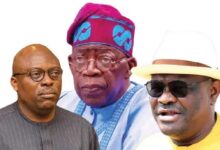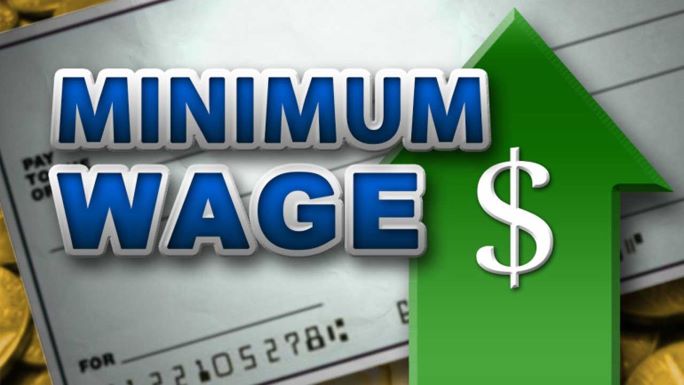Electricity Tariff Hike: Tinubu’s perverse electricity solution


By Nnanke Harry Willie
Nigerians woke up on April 4, 2024 to the shocking news that electricity tariff has been increased to a mind-numbing N225 per kilowatt per hour (Kw/H), an incredible 300% increase from N66.
This move seems to be in tandem with President Tinubu’s style of introducing shocking and astronomical increases in various critical sectors of the economy from fuel, gas, forex etc. It would seem all the administration has been doing is implementing a policy of raising revenues by increasing costs exponentially of vital utilities and products without any consideration of whether the citizenry can afford such increases. Worse still, the quality, quantum and efficiencies of such products and services remain at sub-optimal levels.
Stakeholders decry burden of 300% electricity tariff hike
The Nigerian Electricity Regulatory Commission (NERC) on Wednesday approved the increase in electricity tariffs for customers under the Band A classification. Customers under Band A are to enjoy 20-24 hours of electricity supply daily. Those in Band B will enjoy 16 to 20 hours. Band C willenjoy 12 to 16 hours of power supply daily, while Band D subscribers are beneficiaries of eight to 12 hours daily power supply, and Band E subscribers only enjoy four to eight hours of electricity supply every day.
Union bemoans hike in electricity tariff
This is exactly the scenario Nigerians have found themselves in the current electricity scenario. Power supply is at an abysmally low level across the country. The National grid has recorded more collapses than we can count. Businesses are going under, and consumers are left with few choices as their purchasing power is continually eroded due to high production and distribution costs. Yet, in the middle of all this, Tinubu’s government thought it wise to strike again!
The recent surge in electricity tariffs has sent shockwaves through the population. The silence among the citizens is akin to the silence of the graveyard. People’s hopes, livelihoods and sheer survival are being buried in real time before their own eyes due to no fault of theirs. Citizens already burdened by numerous economic challenges can only wonder why this yoke has to be foisted upon them yet again.
This move, purportedly aimed at improving the efficiency of the power sector, stands condemned as nothing short of perverse, wrong, and wicked. Let’s delve into why.
Why FG approved 300% electricity tariff hike from N68/KwH to N225
- Burdening the Already Burdened:
Nigeria’s economy is characterized by significant income disparities, with a large segment of the population struggling to make ends meet. Indeed, Nigeria is infamously renowned as the poverty capital of the world! Hiking electricity tariffs only adds to the financial strain on households, many of whom already face difficulties accessing reliable electricity. Forcing them to pay more for an essential service further exacerbates their plight and widens the gap between the haves and the have-nots. The attempt to claim that the poor will not be affected by the increase is, at best, myopic and at worst, deceitful.
First of all, the so-called A to E bands categorisations is proof that the poor are intentionally being denied a vital utility for self-actualisation and empowerment. Pray, why should any Nigerian be subjected to a mere 4 hours of electricity per day by policy?
Secondly, since the manufacturing sector is going to be subjected to paying the N225 tariff, it is only natural that the costs of their products would further increase beyond the reach of the average Nigerian who is even now struggling to survive.
- Failure of the Electricity (Power) Sector:
Nigeria’s power sector has been plagued by chronic underinvestment, inadequate infrastructure, and poor maintenance, leading to a persistent lack of consistent power supply. The country’s power generation capacity is estimated to be around 4,000 megawatts, far below the estimated demand of 17,000 megawatts. This means that many Nigerians experience frequent power outages, sometimes lasting for several hours, even days or weeks. Despite these challenges and abysmal state of affairs, the government has decided to increase the electricity tariff, which further burdens, even punishes the already struggling Nigerian consumers.
The rationale behind the astronomical tariff hike is supposedly to incentivize investment and improve service delivery in the power sector. However, Nigeria’s power sector has been plagued by inefficiency, corruption, and mismanagement for decades. Despite previous tariff hikes, electricity supply has remained erratic, with frequent power outages crippling businesses and hindering economic growth. Instead of addressing the root causes of these issues, authorities continue to resort to short-sighted measures that only burden consumers further.
As long as government officials and their cronies are allowed to be the key players in the sector, nothing will change. A good example is how NITEL for ages denied Nigerians access to telephones with a former Communications Minister, David Mark, proclaiming gleefully that “Telephone is not for the Poor”. A proper deregulation of the telecom sector in former President Obasanjo’s tenure has since put paid to that falacious claim as Nigeria’s teledensity rose from below 1 million in 4 decades to over 100 million in just a few years! It may be deduced that the same forces that stifled our telephony growth are at work again and seem to be saying “Electricity is not for the Poor!”. Shame indeed!
- Lack of Alternatives:
One of the most egregious aspects of the tariff hike is the absence of viable alternatives for consumers. In many parts of Nigeria, access to electricity from the national grid is the only option available, leaving consumers at the mercy of monopolistic practices and arbitrary price increases. This lack of competition allows electricity providers to impose tariffs without fear of losing customers, further eroding consumer rights and perpetuating a cycle of exploitation.
Due to the unreliable power supply, some Nigerians who can afford it rely on alternative sources of electricity, such as generators, to meet their energy needs. However, these generators are now expensive to maintain and operate, with the high cost of fuel and maintenance adding to the financial burden of households and businesses. The hike in electricity tariffs will only exacerbate the situation, making it even more difficult for Nigerians to afford the high cost of generators.
- Social Implications:
Electricity is not merely a commodity; it is a basic necessity that impacts every aspect of daily life, from healthcare to education to productivity. By making electricity less affordable, the government is effectively depriving its citizens of essential services and perpetuating a cycle of poverty. Children are forced to study in darkness or not study at all, businesses struggle to remain afloat and competitive, and healthcare facilities operate at suboptimal levels, all due to the inability to access reliable electricity. In short, ideas, dreams, businesses and people are dying due to the decadent state of electricity in Nigeria. More will die with this recent unreasonable tariff hike.
- Political Insensitivity:
Nigeria is currently grappling with high levels of unemployment and poverty, with millions of Nigerians living below the poverty line. The electricity tariff hike will only worsen the situation, as it will increase the cost of living for Nigerians, who are already struggling to make ends meet. The government’s decision to increase the tariff without addressing the underlying issues in the power sector is wrong, insensitive and will only further impoverish and incapacitate Nigerians.
The decision to hike electricity tariff astronomically demonstrates a profound disconnect between the government and the people it purports to serve. At a time when citizens are grappling with inflation, unemployment, and insecurity, burdening them with higher electricity bills smacks of callousness and indifference. It highlights a failure of leadership to prioritize the welfare of the populace over short-term financial gains, further eroding trust in the government’s ability to address the country’s myriad challenges.
6. Inadequate Consultation:
The government’s decision to increase the electricity tariff without adequate consultation with stakeholders, including consumers, is a violation of their rights to participate in decisions that affect them. The lack of consultation is sure to cause a disconnect with the Tinubu administration amid strident calls, even action for the government to reverse the decision. The government’s failure to engage in meaningful dialogue with stakeholders is a disservice to Nigerians, who deserve to have a say in decisions that affect their lives.
Finally, the vexatious hike in electricity tariffs represents a regressive, repressive, and morally indefensible policy that prioritizes the interests of a few over the well-being of the masses. Indeed, it is state capture of a different hue. It is a manifestation of systemic failures within the power sector and a betrayal of the government’s responsibility to ensure access to essential services for all its citizens. As long as such policies persist, Nigeria will continue to lag behind in its quest for economic development and social progress, leaving millions trapped in a cycle of poverty and deprivation.
This move by President Tinubu does not renew hope all. Tinubu needs to have a rethink. Nigeria needs a well-thought-out policy that prioritizes adequate electricity generation, transmission and distribution of electricity. With the attendant economies of scale, electricity can then be more available, affordable and accessible while making the operators in the power sector more accountable. This is urgently needed to alleviate the suffering of Nigeria’s citizens and propel the country towards a greater future.
Nnanke Harry Willie is a seasoned Brand and Communications Consultant and Publisher of brandpowerng.com











